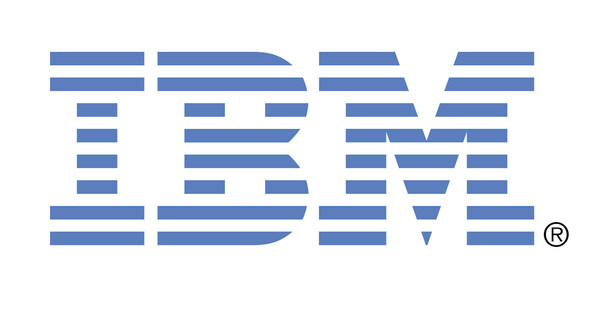UNDP and IBM developed two new interactive models for UNDP's Data Futures Exchange's GeoHub: the AI model Electricity Access Forecasting and the statistical geospatial model Clean Energy Equity Index.
The organizations collaborated through the IBM Sustainability Accelerator program using technologies such as IBM watsonx,IBM Cloud and IBM Environmental Intelligence.
The new models will be made available for free to the general public through UNDP's GeoHub dashboards,helping users access data and insights to interpret complex clean energy challenges and opportunities.
ARMONK,N.Y.,Sept. 17,2024 -- IBM (NYSE: IBM) and United Nations Development Programme (UNDP) today launched new interactive models on energy within UNDP's global GeoHubplatform. These innovative solutions use technologies such as the IBM watsonx AI and data platform to enable users — from policymakers at the national and community level to the general public — to analyze complex energy issues through advanced artificial intelligence (AI) technology and access a wide range of resources,helping support data-driven decision-making toward a just energy transition.

"Bringing together UNDP's knowledge and global leadership in sustainable development and IBM's breakthrough innovations in AI and hybrid cloud,we are proud to unveil solutions that demonstrate the power of technology to make a lasting,positive impact on our environment and in our communities," said Justina Nixon-Saintil,IBM Vice President and Chief Impact Officer. "By making innovative models freely accessible to the public,we aim to empower leaders,organizations and community members alike with the insights to make impactful energy decisions around the world."
As part of UNDP's Data Futures Exchange (DFx),GeoHub is a centralized ecosystem of geospatial data and services. It provides a platform to easily upload,visualize and analyze datasets,combining time-oriented and geographic data with satellite imagery. GeoHub supports a granular,localized,and evidence-based approach to development challenges and integrated policy making— from determining subnational distribution of electricity access,to assessing levels of vulnerability to the effects of climate change for communities over time.
"UNDP's innovative collaboration with IBM helps countries leverage development data and technology innovation to improve lives and protect the planet. The solutions we've co-created provide a credible evidence base to help countries make meaningful and practical progress towards a just energy transition. Net-zero investment and people-centered development strategies are fundamental to accelerate the SDGs," said Laurel Patterson,Head of the UNDP SDG Integration Team,UNDP Bureau for Policy and Programme Support.
UNDP and IBM worked together over two years through the IBM Sustainability Acceleratorprogram. This project started with a collaborative engagement through the IBM Garage,and resulted in the enhancement of UNDP's GeoHub with two innovative models: the AI model Electricity Access Forecasting and the statistical geospatial model Clean Energy Equity Index.
The Electricity Access Forecasting AI model uses the IBM watsonx AI and data platform,IBM Cloud,and an open-source machine learning library to provide future forecasts at scale of electricity access through 2030 by evaluating a set of factors including population,infrastructure,urbanization,elevation,and satellite data in addition to land use data provided by IBM Environmental Intelligence. By modeling these factors to make a future forecast,the Electricity Access Forecasting model provides a distinct advantage compared to more commonly available,current-day estimates of electricity access. The model will contain data from 102 countries across the Global South,including in Africa,Asia Pacific,Latin America and the Middle East.
The Clean Energy Equity Index,developed by IBM and UNDP together with Stony Brook University,is a first-of-its-kind statistical geospatial model combining geospatial analytics with environmental,economic and social factors – such as education,greenhouse gas emissions,and relative wealth — to generate a Clean Energy Equity score of 0-1. This score reflects both opportunities for clean energy development as well as urgency,through the lens of equity and a just transition. In this dashboard,GeoHub users can also individually view and customize each environmental,economic,or social factor analyzed in the model,to evaluate which factors have the greatest impact on equitable access to clean energy,empowering better decision making. The model will provide data from 53 African countries.
Historically,advanced models like these have not always been freely accessible and applicable to all users. Together,IBM and UNDP set out to co-create solutions that would strengthen free public access to complex clean energy information and advanced technology,while simultaneously providing essential energy resources for policymakers,governments,journalists and decision makers.
About the IBM Sustainability Accelerator
Launched in 2022,the IBM Sustainability Accelerator is a social impact program that addresses environmental threats impacting vulnerable communities around the world. Each year,the program selects about five projects to scale technology and AI solutions within a new sustainability topic area. To date,the IBM Sustainability Accelerator has supported 15 global projects across three active cohorts,focused on sustainable agriculture,clean energy and water management. For more information: https://www.ibm.com/impact/initiatives/ibm-sustainability-accelerator/
About United Nations Development Programme
UNDP works in about 170 countries and territories,helping to eradicate poverty,reduce inequalities and exclusion,and build resilience so countries can sustain progress. As the UN's development agency,UNDP plays a critical role in helping countries achieve the Sustainable Development Goals.
CONTACT
Carmen San Segundo
Global Communications Director,ESG and CSR
carmenssg@ibm.com

IBM Corporation logo.